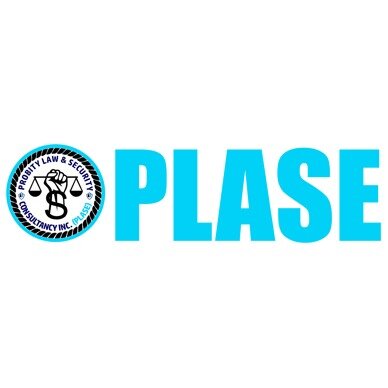Best Native People Lawyers in Liberia
Share your needs with us, get contacted by law firms.
Free. Takes 2 min.
Or refine your search by selecting a city:
List of the best lawyers in Liberia
About Native People Law in Liberia
Native People in Liberia, often referred to as the indigenous communities, consist of various ethnic groups who have lived in the region for centuries. Liberian law recognizes the distinct cultural, spiritual, and historical significance of these communities. Legislation often focuses on protecting their rights, lands, and cultural heritage. Historcally, Native People in Liberia have been marginalized, leading to laws and frameworks seeking to address past injustices and promote their rights effectively.
Why You May Need a Lawyer
There are several circumstances where Native People may require legal assistance. For instance, if your community is dealing with land disputes or if there are challenges to your territorial rights due to external development projects, legal guidance is essential. Additionally, seeking advice on the protection of cultural assets, navigating governmental policies affecting social and economic rights, or addressing issues related to discrimination can also necessitate a lawyer.
Local Laws Overview
Local laws that are particularly significant for Native People in Liberia include land tenure laws, recognition of collective rights, and policies regarding the exploitation of natural resources. The Community Rights Law (CRL) is crucial for communities as it addresses land ownership, use, and management. Customary Law also plays a vital role, serving as the legal framework governing the affairs of indigenous communities, particularly in private matters and local disputes.
Frequently Asked Questions
What rights do Native People have over their land in Liberia?
Native People have rights to use and manage land according to custom, recognized by the Community Rights Law, which provides legal backing for the traditionally constructed ownership and land-use systems.
How can Native People protect their cultural heritage legally?
Native People can engage with legal frameworks that protect cultural artifacts, languages, and practices by leveraging national heritage laws and international human rights provisions recognizing indigenous cultural rights.
What role does customary law play in the legal system for Native People?
Customary law, a traditional system of rules, deals with personal, communal, and social issues within indigenous tribes and is formally recognized by the national legislature.
Are there legal resources available specifically for Native People?
Yes, several NGOs and governmental initiatives focus on protecting Indigenous rights, offering legal aid, and serving as advocates for Native People in Liberia.
What steps can be taken if there's a dispute over natural resource exploitation?
Communities can seek legal intervention, engage with advocacy groups, and utilize negotiation frameworks set under national and international law protecting indigenous rights.
How is traditional leadership recognized under Liberian law?
Traditional leaders hold both cultural and political influence under both national law and customary law, often acting as mediators and representatives for community concerns.
What support can lawyers offer to Native People facing discrimination?
Lawyers can provide legal representation, assist in filing complaints, guide through the bureaucratic process, and help secure justice and compensation if discrimination occurs.
How can I ensure my community's input is considered in developmental projects?
Engagement in consultations and ensuring informed consent is vital. Legal experts can ensure such processes are respected and that community concerns are recorded and addressed.
How does the government support the educational rights of Native People?
Policies are being developed to ensure access to education for indigenous children, although challenges remain; advocacy remains crucial to improve educational access and quality.
What are the primary challenges facing Native People in Liberia regarding legal issues?
Challenges include inadequate legal representation, limited access to resources, land tenure conflicts, and the impact of industrial activities on traditional lands and lifestyles.
Additional Resources
Several resources can be beneficial, including the Liberian Land Authority, organizations such as the Carter Center, and indigenous rights advocacy groups focusing on legal assistance and policy development.
Next Steps
If you need legal assistance concerning Native People issues, consider reaching out to community legal networks or pro bono attorneys who specialize in native law. Document all relevant information, reach out to advocacy organizations, and consult legal experts who understand the intersection of customary and national law. Where possible, engage your community leaders in the process as they can act as crucial liaisons and advocates.
Lawzana helps you find the best lawyers and law firms in Liberia through a curated and pre-screened list of qualified legal professionals. Our platform offers rankings and detailed profiles of attorneys and law firms, allowing you to compare based on practice areas, including Native People, experience, and client feedback.
Each profile includes a description of the firm's areas of practice, client reviews, team members and partners, year of establishment, spoken languages, office locations, contact information, social media presence, and any published articles or resources. Most firms on our platform speak English and are experienced in both local and international legal matters.
Get a quote from top-rated law firms in Liberia — quickly, securely, and without unnecessary hassle.
Disclaimer:
The information provided on this page is for general informational purposes only and does not constitute legal advice. While we strive to ensure the accuracy and relevance of the content, legal information may change over time, and interpretations of the law can vary. You should always consult with a qualified legal professional for advice specific to your situation.
We disclaim all liability for actions taken or not taken based on the content of this page. If you believe any information is incorrect or outdated, please contact us, and we will review and update it where appropriate.
Browse native people law firms by city in Liberia
Refine your search by selecting a city.








